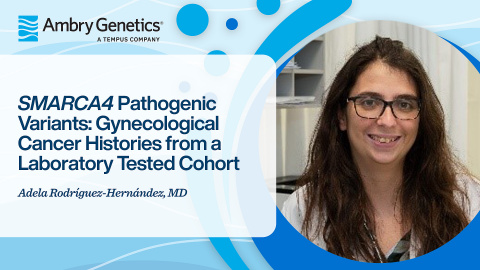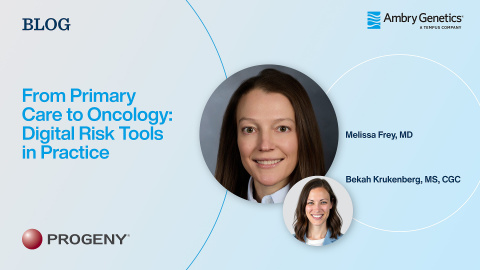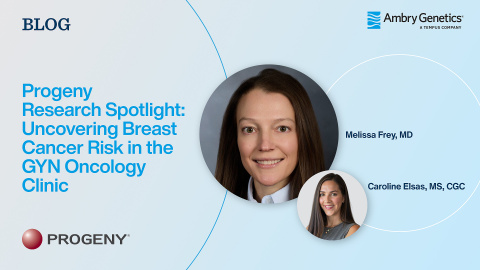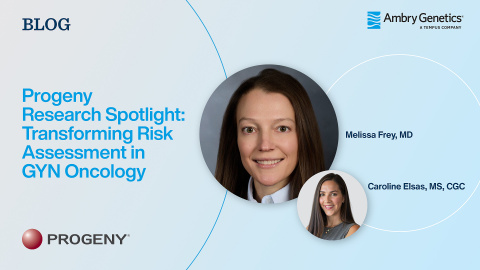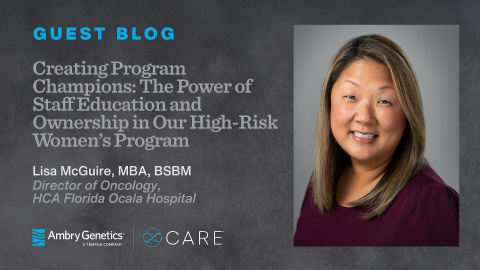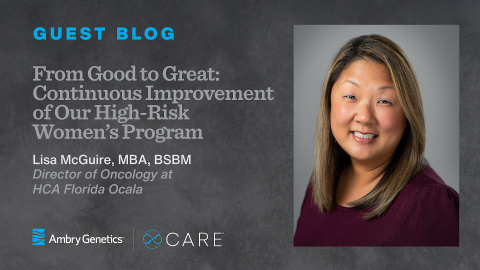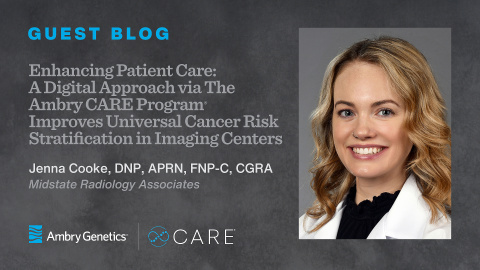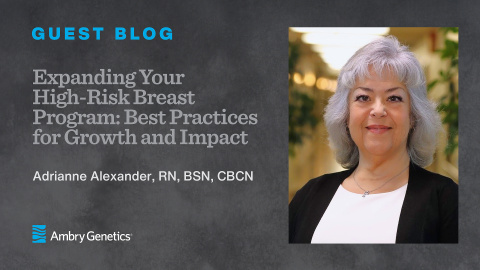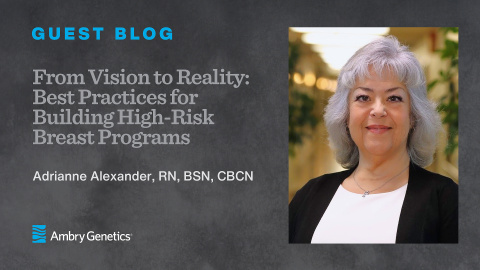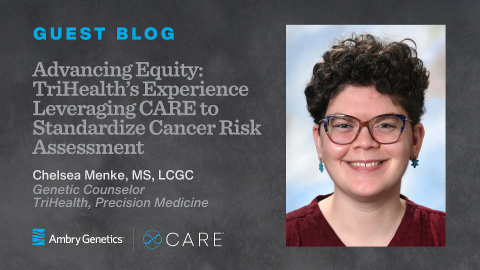- By Adela Rodríguez-Hernández, MD
- Posted December 17, 2025
SMARCA4 Pathogenic Variants: Gynecological Cancer Histories from a Laboratory Tested Cohort
As a research fellow in the Cancer Genetics and Prevention group at Dana-Farber Cancer Institute—trained as a medical oncologist in Spain and specializing in hereditary cancer and translational genomics—I am often asked how to counsel patients who carry rare pathogenic variants, particularly when evidence is limited or outdated. Few scenarios…
- By Bekah Krukenberg, MS, CGC
- Posted December 10, 2025
From Primary Care to Oncology: Digital Risk Tools in Practice
Dr. Melissa Frey, a gynecologic oncologist, cancer geneticist, and researcher based in New York City, uses digital tools to streamline family history intake, assess cancer and hereditary risk, and improve documentation. We’ve previously covered Dr. Frey’s work showing how digital history collection improved documentation and risk assessment…
- By Caroline Elsas, MS, CGC
- Posted October 22, 2025
Progeny Research Spotlight: Uncovering Breast Cancer Risk in the GYN Oncology Clinic
Dr. Melissa Frey, a gynecologic oncologist, cancer geneticist, and researcher based in New York City—is redefining what gynecologic (GYN) cancer survivorship can look like. In our last blog featuring Dr. Frey’s research, we explored how her clinic transformed family history collection and risk assessment using Progeny. At first, Dr. Frey…
- By Caroline Elsas, MS, CGC
- Posted September 30, 2025
Progeny Research Spotlight: Transforming Risk Assessment in GYN Oncology
Bridging the Gap Between Treatment and Prevention At the intersection of cancer treatment and prevention, Dr. Melissa Frey—a gynecologic oncologist, cancer geneticist, and researcher based in New York City—has long recognized the critical importance of early cancer risk assessment. Dr. Frey identified a persistent challenge: traditional family…
- By Lisa McGuire, MBA, BSBM
- Posted July 16, 2025
Creating Program Champions: The Power of Staff Education and Ownership in Our High-Risk Women's Program
When we partnered with Ambry to launch our High-Risk Women's Program (HRWP) at HCA Florida Ocala in 2023, I was excited about the potential to improve early cancer detection and even prevention in our mammography patients. The Ambry CARE Program® (CARE) provided the digital tools we needed to assess hereditary and breast cancer risk based on…
- By Lisa McGuire, MBA, BSBM
- Posted April 9, 2025
From Good to Great: Continuous Improvement of Our High-Risk Women's Program
At HCA Florida Ocala, we are committed to improving patient outcomes via earlier cancer detection and prevention. Since launching our High-Risk Women's Program in partnership with the Ambry CARE Program® (CARE) in June 2023, we've been on a journey of continuous improvement. We’re also sharing what we’ve learned with the cancer care community—most…
- By Jenna Cooke, DNP, APRN, FNP-C, CGRA
- Posted December 18, 2024
Enhancing Patient Care: A Digital Approach via The Ambry CARE Program® Improves Universal Cancer Risk Stratification in Imaging Centers
Identifying individuals at increased cancer risk is crucial for prevention and early cancer diagnosis. Integrating a risk assessment tool into imaging centers supports proactive cancer risk management by combining risk evaluation with immediate diagnostic capabilities. A retrospective study was conducted across 15 Midstate Radiology Associates…
- By Adrianne Alexander, RN, BSN, CBC
- Posted July 17, 2024
Expanding Your High-Risk Breast Program: Best Practices for Growth and Impact
One of the accomplishments I am most proud of is driving the creation of a successful high-risk breast program in a large community-based health system. I am often asked how we did it. For advice on getting started, check out the first blog in this series. If you have already implemented a high-risk breast program, congratulations! It’s time…
- By Adrianne Alexander, RN, BSN, CBC
- Posted June 20, 2024
From Vision to Reality: Best Practices for Building High-Risk Breast Programs
Breast cancer remains the number one most common cancer among women in the United States, and the number two leading cause of cancer deaths among women.1 Approximately 20% of all breast cancer cases are associated with a family history of breast cancer, and approximately 10% are hereditary (due to pathogenic variant or mutation in a gene).2,3…
- By Chelsea Menke, MS, LCGC
- Posted April 30, 2024
Advancing Equity: TriHealth’s Experience Leveraging CARE to Standardize Cancer Risk Assessment
National Minority Health Month (NMHM) dates back to April 1915 when Booker T. Washington established the National Health Improvement Week (later known as National Negro Health Week).1,2 The goal then, as it remains today, was to improve the health and wellbeing of underserved or minority populations. This can only be done by building awareness…
